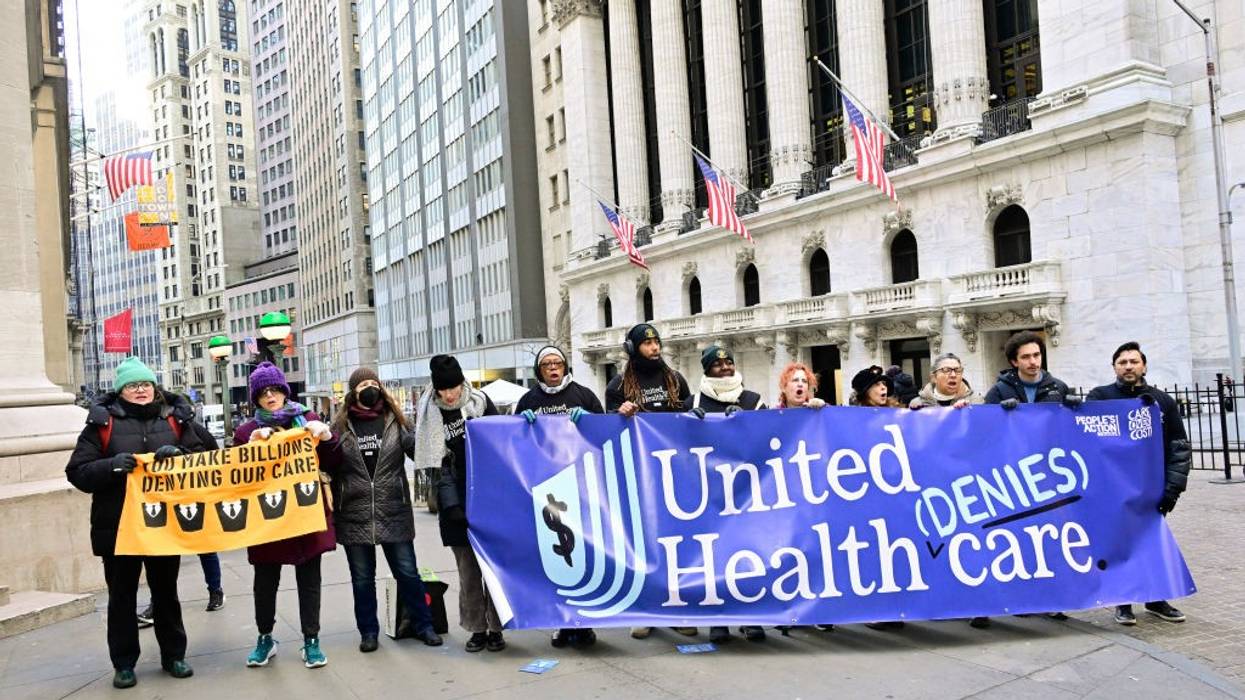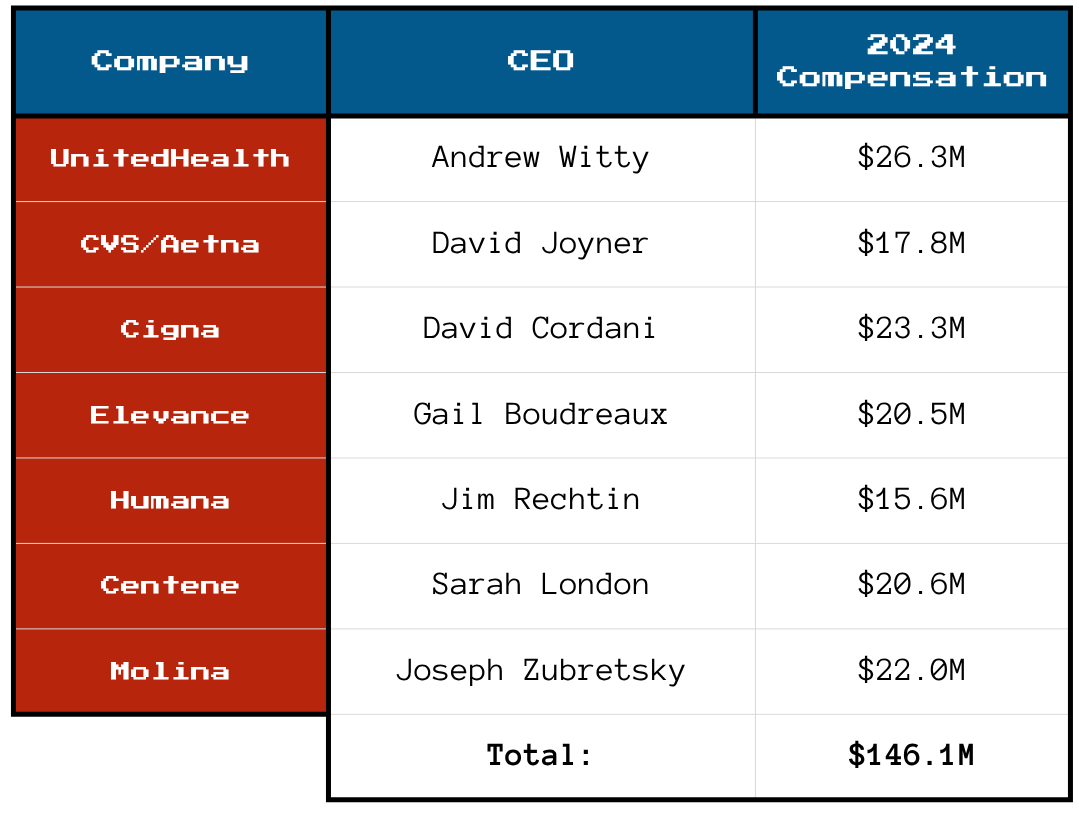"Millions of Americans with diabetes need insulin to survive, yet for many of these vulnerable patients, their insulin drug costs have skyrocketed over the past decade thanks in part to powerful PBMs and their greed," said Rahul Rao, deputy director of the FTC's Bureau of Competition.
"Caremark, ESI, and Optum—as medication gatekeepers—have extracted millions of dollars off the backs of patients who need lifesaving medications," Rao continued. "The FTC's administrative action seeks to put an end to the Big Three PBMs' exploitative conduct and marks an important step in fixing a broken system—a fix that could ripple beyond the insulin market and restore healthy competition to drive down drug prices for consumers."
The FTC's vote to begin the legal process by filing a complaint was 3-0. Led by Chair Lina Khan, the Democrats supported the move while the two Republicans, Commissioners Melissa Holyoak and Andrew N. Ferguson, recused.
The American Prospect executive editor David Dayen noted that "the complaint, which was filed in an administrative court, has not yet been made public, as it is undergoing redactions. Agency officials expect it to be made public on Monday."
However, in a statement after the vote, the FTC shared some details about the complaint's arguments that "Caremark, ESI, and Optum and their respective GPOs engaged in unfair methods of competition and unfair acts or practices under Section 5 of the FTC Act by incentivizing manufacturers to inflate insulin list prices, restricting patients' access to more affordable insulins on drug formularies, and shifting the cost of high list price insulins to vulnerable patient populations."
Rao
emphasized that while the commission on Friday "exercised its discretion to move forward with suing only the PBMs and GPOs now, FTC staff's investigation has also shed light on the concerning and active role that the insulin manufacturers—Eli Lilly, Sanofi, and Novo Nordisk—play in the challenged conduct."
"All drug manufacturers should be on notice that their participation in the type of conduct challenged here can raise serious concerns, with a potential for significant consumer harm, and that the Bureau of Competition reserves the right to recommend naming drug manufacturers as defendants in any future enforcement actions over similar conduct," he said.
Emma Freer, senior policy analyst for healthcare at the American Economic Liberties Project, pointed out that "the FTC's case adds to the mounting, bipartisan criticism of the 'Big Three' PBMs, which for far too long have exploited their monopoly power to inflate drug prices and enrich shareholders at the expense of patients' health and pocketbooks."
"The lawsuit also exposes their industrywide abuse, using insulin—the price of which has soared over 1,200% since 1999—as a flagship example of how PBMs' rebate schemes distort markets and drive up costs for lifesaving drugs," Freer said. "While PBMs bear much of the blame, the FTC is right to also put brand-name manufacturers like Eli Lilly, Novo Nordisk, and Sanofi on notice for their role in this crisis. We're thrilled to see the commission bring this long overdue challenge against healthcare's most notorious middlemen, and hope to see it result in concrete reform and accountability."
As
The New York Times reported:
Just weeks before the presidential election, the agency is tackling an issue that Vice President Kamala Harris has signaled an interest in.
Campaigning at a community college in Raleigh, North Carolina, in August, Ms. Harris promised to "demand transparency from the middlemen who operate between Big Pharma and the insurance companies, who use opaque practices to raise your drug prices and profit off your need for medicine."
Former President Donald J. Trump has not campaigned on the issue, but in 2018, his administration
proposed a sweeping change that would have threatened the benefit managers' business model. The proposal was never enacted. Mr. Trump's administration also created a model for capping Medicare patients' out-of-pocket costs for some insulin products that was later expanded under President [Joe] Biden.
The
Times also noted that "some Republicans in Congress have proposed curbing some of the benefit managers' business practices. But other top Republicans have defended PBMs and said the FTC is overreaching."
Among the GOP's critics of PBMs is House Committee on Oversight and Accountability Chairman James Comer (R-Ky.), who
highlighted his panel's investigations into the companies and praised the FTC move.
Another leading congressional critic of PBMs—and the country's
failing for-profit healthcare system more broadly—is Senate Committee on Health, Education, Labor, and Pensions (HELP) Chair Bernie Sanders (I-Vt.), who caucuses with Democrats.
After a public pressure
campaign led Eli Lilly, Novo Nordisk, and Sanofi to cut list prices of insulin products last year, Sanders held a hearing with their CEOs as well as PBM executives. At the time, he welcomed the voluntary reductions but also stressed that as "Americans pay outrageously high prices for prescription drugs, the pharmaceutical industry and the PBMs make enormous profits."
While the FTC's Friday action was widely praised—other than by the PBMs, who denied the allegations—some advocates hope the commission and other decision-makers will go even further in the future.
Stacy Mitchell, co-executive director of the Institute for Local Self-Reliance, called PBMs "some of the most predatory corporations in healthcare" and highlighted that "these companies have incredibly long rap sheets and convictions at the state level."
"I'm thrilled the FTC is going after these criminal enterprises," she said. "I hope this lawsuit, with its focus on kickbacks, is just the beginning. We also need action on how PBMs harm local pharmacies. Ultimately, these corporations need to be broken up."



 (Image: Health Care un-covered)
(Image: Health Care un-covered) (Image: Health Care un-covered)
(Image: Health Care un-covered)
